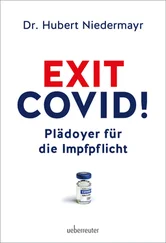Hubert Aquin - Next Episode
Здесь есть возможность читать онлайн «Hubert Aquin - Next Episode» весь текст электронной книги совершенно бесплатно (целиком полную версию без сокращений). В некоторых случаях можно слушать аудио, скачать через торрент в формате fb2 и присутствует краткое содержание. Год выпуска: 2001, ISBN: 2001, Издательство: McClelland & Stewart, Жанр: Современная проза, на английском языке. Описание произведения, (предисловие) а так же отзывы посетителей доступны на портале библиотеки ЛибКат.
- Название:Next Episode
- Автор:
- Издательство:McClelland & Stewart
- Жанр:
- Год:2001
- ISBN:9781551996240
- Рейтинг книги:3 / 5. Голосов: 1
-
Избранное:Добавить в избранное
- Отзывы:
-
Ваша оценка:
- 60
- 1
- 2
- 3
- 4
- 5
Next Episode: краткое содержание, описание и аннотация
Предлагаем к чтению аннотацию, описание, краткое содержание или предисловие (зависит от того, что написал сам автор книги «Next Episode»). Если вы не нашли необходимую информацию о книге — напишите в комментариях, мы постараемся отыскать её.
is a disturbing and yet deeply moving novel of dissent and distress. As he awaits trial, a young separatist writes an espionage story in the psychiatric ward of the Montreal prison where he has been detained. Sheila Fischman’s bold new translation captures the pulsating life of Aquin’s complex exploration of the political realities of contemporary Quebec.
Next Episode — читать онлайн бесплатно полную книгу (весь текст) целиком
Ниже представлен текст книги, разбитый по страницам. Система сохранения места последней прочитанной страницы, позволяет с удобством читать онлайн бесплатно книгу «Next Episode», без необходимости каждый раз заново искать на чём Вы остановились. Поставьте закладку, и сможете в любой момент перейти на страницу, на которой закончили чтение.
Интервал:
Закладка:
We walked till late that night, till the entire Rhône valley was filled with sun, and little by little the old port of Ouchy rang out with the sound of motors and work, and the waiters set out the chairs on the terrace of the Hôtel d’Angleterre where, during a single night in the beautiful summer of 1816, Byron wrote “The Prisoner of Chillon.” We had breakfast at a table on the hotel terrace, silent beside the liquid mirror still veiled by a hazy breath. After a twelve-month separation, after twelve times measuring the impossibility of living one more month, after a night spent walking from Place de la Riponne to the ancient lake, at the first hour of dawn we went up to a room in the Hôtel d’Angleterre, perhaps the one where Byron sang of Bonnivard, who had once foundered in a cell in the Château de Chillon. K and I, drenched in the same flood of sorrow, lay down naked between cool sheets, annihilated voluptuously by one another in the timely splendour of our poem and the dawn. Again tonight I’m shattered by our blinding embrace, by the incantatory shock of our two bodies, and now, at the end of this blazing dawn, I’m alone on a blank page where I no longer breathe the warm breath of a fair-haired stranger, where I no longer feel her weight that attracts me according to a Copernican system, where I no longer see her amber skin or her tireless lips or her sylvan eyes, where I don’t hear the pure song of her pleasure. Alone now in my paginated bed, I ache as I remember that lost time now regained, spent naked in the secret profusion of the pleasures of the flesh.
The swaying rhythms of “Desafinado,” which burst unexpectedly from the Multivox, raise me up to the level of the bitter lake where I rediscovered the dawn of your body in one overwhelming embrace. They take me to your membranous shore where it would have been better to die because I’m dying now. The weather that morning was fine, it marked the exalted union of two days and our two bodies. Yes, it was absolute dawn, between a July 26 that evaporated above the lake and the immanent night of the revolution. The burden of words inside me doesn’t stop the clear stream of time past from cascading into the lake. Past time now passes again, even more quickly than it did that morning in our room at the Hôtel d’Angleterre, with its view of the vanished glacier of Galenstock which descended one day to the very spot on the hotel terrace where K and I sat at dawn. Vanished glacier, vanished love, fleeting interglacial dawn, a kiss that has fled to the far shore, far from the misty window of my bathyscaphe that dives beneath the window where Byron wept in his stanzas to Bonnivard and I in the golden tresses of the woman I love.
This evening, if I am adrift in the bed of the great soluble river, if the Hôtel d’Angleterre is breaking up in the liquid tomb of my memory, if I’ve stopped hoping for dawn at the end of the occlusive night, and if everything is collapsing to the strains of “Desafinado,” all this is because I see at the bottom of the lake the inevitable truth, a terrifying partner no longer disconcerted by my flights and my displays. In the watery depths the unnamed enemy who haunts me finds me naked and defenceless, just as I was in the embrace that forever confirmed us, K and me, as the elusive owners of the Hôtel d’Angleterre, located midway between the Château de Chillon and the Villa Diodati, between Manfred and the future liberation of Greece. Let the global enemy come, for I’m pining away as I wait for him! Let the confrontation come, and the realization of the truth that is threatening me. Or else let them set me free, now, with no other form: me, a prisoner with no poet to sing of my exploits. Then I’ll drown once again in a warm, unmade bed, in the blazing body of the woman who has sated me with love between the night of a chance meeting and a second night, between the dark bottom of Lac Léman and its helical surface. Superfluous words surge past my window, they darken the perimeter of memory and I capsize as I tell my story. Did the meeting at the Hôtel d’Angleterre take place on June 24 or July 26; and is this faltering mass that blocks my field of vision the Montreal Prison or the Château de Chillon, romantic dungeon where the patriot Bonnivard still awaits the revolutionary war I’ve incited without poetry? Between this lakeside prison and the Villa Diodati near Geneva, in a divine hotel room at a place where Byron once stayed, I reinvented love. I discovered a sun, eclipsed by twelve months of separation, which rose that morning between our united bodies, warming the supreme centre of our bed and bursting forth, resplendent and unbearable, in the ancient lake that tumbled gloriously from our two bellies. If only the room, the sun, and our love could be returned to me, for here I have nothing and I’m afraid. What is happening inside me that makes the alpine granite tremble? The paper slips away beneath my weight, like a lake fed by a river. Insidiously, my depression demineralizes me. From a sea of ice I become greedy lava, mirror of suicide. Thirty pieces of silver and I’d kill myself! I would even drop the price lower to cut myself with a shard of glass and be done with revolutionary depression! Yes, it would mark the end of the conspirator’s shameful disease, of mental fracture, of falls perpetrated in a police cell. The end of plans for attack, perpetually renewed, and the indecent pleasure of walking in the crowd of voters as I grip the cool butt of the automatic weapon I wear like a sling! And I’ll fly! Let me walk, unknown and unpunished, through the streets that run from Place de la Riponne and wind their way streaming to the shores of Pully and Ouchy, let me mingle with the great current of history and disappear, anonymous and universal, in the powerful river of the revolution!
All that matters to me is the period of time between the night in the upper part of town and the revolutionary dawn that struck our bodies like lightning in a room where Byron spent a night writing, between Clarens and the Villa Diodati, already en route to a revolutionary war which ended in the final epilepsy of Missolonghi. All that matters to me is this road of light and euphoria. And our embrace at dawn, a closely fought battle, long but so precise, that annihilated us both in the same fainting fit, flooding us with the pure blood of violence!
I don’t want to live here any more with both feet on the cursed soil. I don’t want to endure our national dungeon as if nothing were amiss. I dream of bringing to a permanent stop my drowning, which already dates back several generations. Deep in my polluted river I still feed on foreign bodies, I swallow indifferently the molecules of our secular depressions, and it disgusts me. From generation to generation I fill myself with antibodies. Faithful to our bitter motto, I get drunk on a nitric beverage, and I’m hooked.
4
IT WAS NEARLY six o’clock when we left our room in the Hôtel d’Angleterre. The sun, source of our love and our intoxication, was already growing hazy behind the Cornets de Bise, draining the great valley of its significance. But in us the star still blazed with its hypnagogic brilliance. We sauntered to the Quai des Belges, nonchalantly joining workers and lovers. Then we went closer to the lake. Drunk with the intoxication of bygone days, we strolled along the big jetty and the wharf. The steamer Neuchâtel was moored there, surrounded by a noisy, cheerful crowd. We sat some distance from the white boat and the crowd on the diminishing line of rocks that emerged from the blue water of Lac Léman. If only this landscape would imprison me again in its beautiful improbability, I could die without bitterness! If only I could stroll hand in hand with K again on the shores of Ouchy, if I could totter along these eroded rocks and sit close beside K, so close that her twilight hair would brush my cheek! Because I could be delirious here, with my back to the terraced city as I faced the torn depths of the great nearby mountains, close to the woman, a free spirit, who walked on the water and whom I love! And what did our happiness consist of as we gazed at its darkened glints in the cypresses that camouflaged the steamer Neuchâtel in the serene water of the lake and on the great Alps whose dazzling flanks loomed up before us? What had filled this time except perhaps the long and ardent journey that had gone before and the recent explosion of our pleasure: twelve months and one night of falling between Place de la Riponne and the revolutionary dawn that overwhelmed the sky, the whole chain of the Alps, visible and invisible, and our bodies reunited in 1816. While we were becoming the epicentre of a grandiose universe, a consummate serenity followed the laceration of pleasure. At this moment, on these rocks spared by erosion and in the midst of our dizziness, there were no obstacles to my euphoria: I was adrift in plenitude, invested with love and the dawn. Something glorious was at work in me, while the exhausted sun was descending with the waters of the Rhône and K, chilly or perhaps melancholy, moved tenderly close to me.
Читать дальшеИнтервал:
Закладка:
Похожие книги на «Next Episode»
Представляем Вашему вниманию похожие книги на «Next Episode» списком для выбора. Мы отобрали схожую по названию и смыслу литературу в надежде предоставить читателям больше вариантов отыскать новые, интересные, ещё непрочитанные произведения.
Обсуждение, отзывы о книге «Next Episode» и просто собственные мнения читателей. Оставьте ваши комментарии, напишите, что Вы думаете о произведении, его смысле или главных героях. Укажите что конкретно понравилось, а что нет, и почему Вы так считаете.












